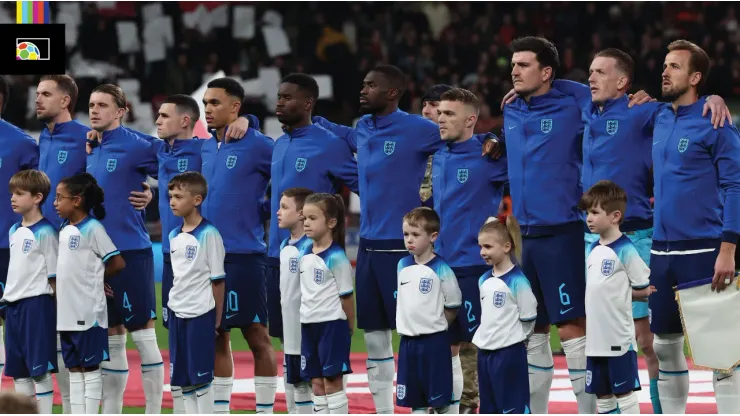
The international game is one of the most important parts of soccer. The sport’s biggest event, the World Cup, and other prestigious tournaments like the Euros or Copa América are considered by many players and fans alike as the pinnacle of the game. When players are chosen for their national squads, they leave their clubs to mingle with other players from their home nation. But how do these international soccer call-ups work?
International soccer – nothing else quite like it
Almost every sport that is contested professionally also has international competitions, where players represent nations instead of individual club teams. But soccer is almost certainly the highest-profile of any international sport.
Not only do these matches carry the most weight and draw the most interest from fans and media worldwide. But international soccer teams also get together and compete on a more regular basis than most other sports.
For example, basketball and ice hockey have major tournaments at the Olympics every four years. But other events in between garner much less interest, and often the top professional stars do not participate.
Soccer, however, features the best players from each nation consistently suiting up multiple times each year. And “secondary” competitions are still hotly contested and are major honors for the teams that win.
Tip your cap
When a player is called up to their national team and appears in a match, they are commonly said to have been “capped” or “capped X times”.
This terminology has origins in the 19th century early days of the sport. Before matching team shirts were commonplace, many clubs were distinguished by the hats, or caps, they wore. Then, in the 1880s the practice began of awarding actual silk caps to members of the England national team. Ever since, the term “caps” has stuck around. Sometimes physical hats are still given to players for international duty or for milestones in games played for a team.
The logistics of international call-ups
In the weeks, and sometimes months, before an international window or major competition, the rosters for national teams are selected and players are notified.
When it’s time for the games to begin, professional leagues will usually pause for a week or more. This time allows for players to be released to the national teams. To avoid conflicts with club play, major tournaments like the World Cup usually take place between June and August, which is the offseason for many of the world’s top pro leagues. Leagues that do not have many international players, such as lower divisions, often do not pause during these breaks.
In many cases, players make their way to national team camps from all over the world. But for some countries, a large portion, or even all, of their national team plays domestically and doesn’t have to travel far. Sides like Saudi Arabia or South Korea often fit this description.
But to account for travel, even brief international windows for exhibition, or friendly, matches usually leave a few days on either side of the games to allow players to rest and get to and from their clubs.
Getting paid to represent the flag
Circumstances vary from program to program, but in most cases, players are compensated financially when playing for their national teams. This could be in the form of a per-game payment, bonuses, or even a full-time contract.
The latter option is sometimes the case when a nation’s domestic league system is underdeveloped and/or unstable. For example, it was not that long ago that members of both the United States men’s (pre-1990s) and women’s teams (pre-2010s) could count national team duty as their primary job.
Compensation can also come into play if a high-profile star gets injured playing with the national team. If a player gets hurt during a major international tournament, that nation’s football association may be required to compensate the club that the player is under contract with. With millions of dollars invested into players, losing someone to injury while not even playing for your club can certainly sting.
If the team wins or advances far in international play, they usually receive prize money. This purse is then usually split between the players. This of course is a nice cherry on top to getting to represent your country.
Players who perform well on the international stage can become even bigger stars in the game. And they’ll gain fans who, during club play, might normally hate them as supporters of rival teams.
While the duty may send them halfway across the world in the middle of an important season, international call-ups are amongst the highest individual honors in the game and opportunities that are treasured by players.
Photos: Imago
200+ Channels With Sports & News
- Starting price: $33/mo. for fubo Latino Package
- Watch Premier League, Liga MX & Copa Libertadores
The New Home of MLS
- Price: $14.99/mo. for MLS Season Pass
- Watch every MLS game including playoffs & Leagues Cup
Many Sports & ESPN Originals
- Price: $10.99/mo. (or get ESPN+, Hulu & Disney+ for $14.99/mo.)
- Features Bundesliga, LaLiga, NWSL, & USL
2,000+ soccer games per year
- Price: $7.99/mo
- Features Champions League, Serie A, Europa League & EFL
175 Premier League Games & PL TV
- Starting price: $7.99/mo. for Peacock Premium
- Watch 175 exclusive EPL games per season